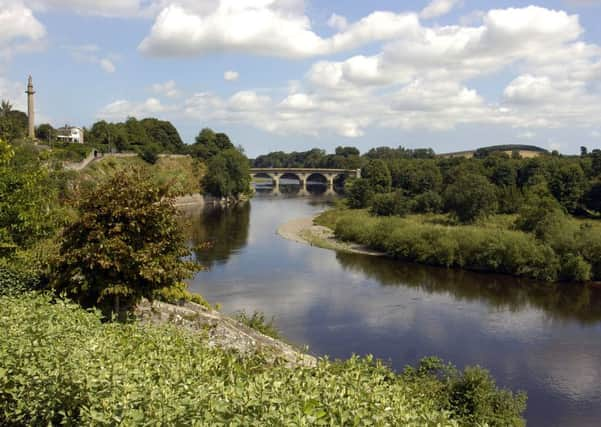Northumberland residents cast envious eye north of the border


Scottish Borders residents are still paying much less in council tax than their English counterparts in Northumberland, despite a recent three per cent tax hike.
On average, Borderers are forking out £508 less than their Northumbrian opposite numbers. In Coldstream, for example, residents living in council tax band D properties can expect to pay £593 less than those in similar properties in Cornhill-on-Tweed, less than a mile away.
Advertisement
Hide AdAdvertisement
Hide AdBoth local authorities recently increased their council tax, Scottish Borders Council by three per cent and Northumberland Council by 2.99 per cent, but years of council tax freezes by the Scottish Government have left Scottish residents paying much less.
South Scotland SNP regional list MSP Emma Harper said: “Not only are council tax bills in Scotland lower than they are south of the border – by over £500 a year on average for a band D property – but the majority of income tax payers will also pay less than they would if they lived elsewhere in the UK.”
But South Scotland Labour regional list MSP Colin Smyth said: “Even if the council tax freeze hadn’t happened and Borderers were paying the same as those in Northumberland, it still wouldn’t raise enough to compensate for the cuts in funding by the Scottish Government.”
Council tax makes up less than a quarter of Scottish Borders Council’s funding, and the latest increase marks only the second council tax hike in the last 10 years.
Advertisement
Hide AdAdvertisement
Hide AdScottish Borders Council leader Shona Haslam said: “The Scottish Borders is the lowest wage economy in Scotland. That, combined with the recent SNP income tax rise, means that people are feeling their households budgets continually squeezed.
“As a council, we are very mindful of the realities that are facing people and want to make sure that the council tax we set is right for our context.”
A Northumberland County Council spokesman said: “We remain committed to protecting front-line services, and ensuring a strong, prosperous and healthy future for the county. We reluctantly agreed to raising council tax by 2.99 per cent to help us protect those vital services and balance the budget. This rise equates to 85p per household per week for a band D property. We had several difficult decisions to make, but, like many local authorities across the UK, we took this decision in line with the Government’s assumptions around spending power, inflation and resulting revenue support grant contribution.”
By Joseph Anderson
Local Democracy Reporter